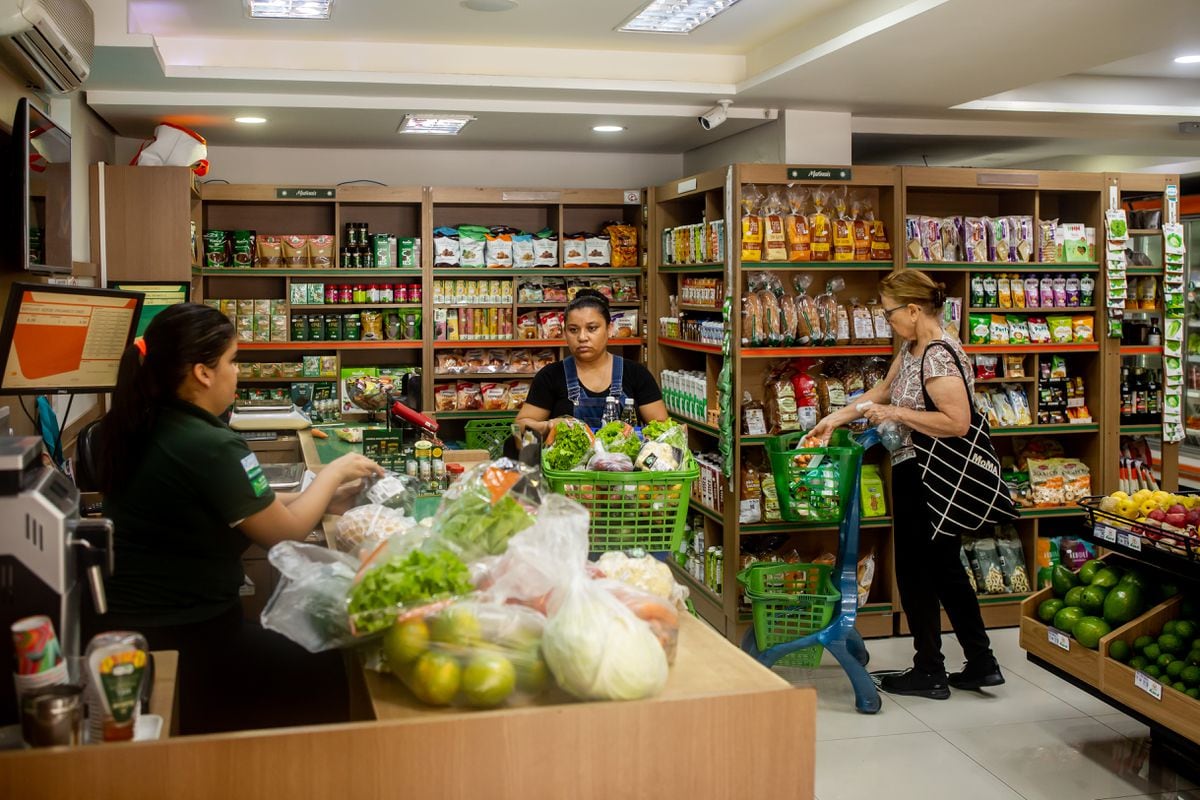Brazil is a box of surprises.
And Korin, a most atypical business group because it was founded 30 years ago by the world Messianic Church with donations from its faithful.
She is still the main owner.
With patience, perseverance, R&D and thanks to the growing popularity of healthy eating, they have become one of the largest organic producers in Brazil.
The messianists founded the company with a much more ambitious mission than earning income: “To create an earthly paradise through natural agriculture to rid the world of disease, poverty and conflict,” explains the top executive of Korin Foods, the messianic Luiz Carlos Dematte (59 years old, Serra Negra, São Paulo), in an interview by video call.
Korin's apostolate, which, in its business aspect, began with the production of chicken raised without antibiotics.
A revolution in Brazil in 1994.
Korin's organic products are on the shelves of large Brazilian supermarket chains and in their stores, but their peculiar story is much less known among customers than their naturally fed chickens and genuine flavor.
Organic chicken, from hens fed with non-transgenic corn, and organic eggs are the hallmark of its best-selling products.
Thanks to them, it has become a medium-sized company in the powerful agricultural sector of this country, which is the third largest producer of chicken in the world after the US and China.
Korin has been expanding its offering to hundreds of organic references that include cereals, rice, beans, honey, coffee -- and lately even fish -- which they produce in five factories.
They have 504 direct employees, Dematte details, and another half a thousand indirect employees.
The executive director explains from the Korin Foods headquarters, in Ipeúna, 200 kilometers from São Paulo, that expanding natural agriculture is one of the pillars of the messianic doctrine, a central mission to build that ideal world that the 1.8 This Church founded in Japan has millions of faithful spread throughout Brazil, where it was established in the mid-20th century.
Brazil, a diverse country like few others and with a deep faith in all types of faiths, is fertile land for cocktails like this, unthinkable in other corners of the planet.
Free-range chickens from Korin organic farms.
Courtesy Korin organics
Although its turnover was already on the rise when the pandemic suddenly appeared, the fear it put into the bodies of many consumers has boosted sales of organic products.
Dematte does not want to go into figures but smiles.
They are expanding.
Every day in 2022 they processed 23,000 organic birds, fresh and frozen, and 150,000 eggs, according to Exame
magazine
, which estimated the Korin Group's income in 2021 at 240 million reais (44 million euros, 48 million dollars), the bulk generated by the food subsidiary, which Dematte has directed since 2021.
The executive, who began his professional career as a veterinarian, has a doctorate in sustainable agriculture and has also trained at a business school.
He, like the company for many years, was going “against the current.”
He was an alternative.
It was his interest in the different ways of cultivating, producing in the field and eating in the face of the prevailing ways, with all their chemicals and collateral effects for humans and the rest of the living beings, that led him to join the Messianic Church. , of which he is minister.
The executive explains that, following the teachings of the founder, a “Japanese religious scientist” named Mokiti Okada, Korin companies treat the earth as a living being with feelings.
They believe that plants relate to each other, in the same way that “chickens recognize each other, feel fear, joy or exercise companionship,” he details.
For the faithful of the global Messianic Church, the natural interaction of the earth with plants and animals produces food with vital energy that contributes to the healing of humanity.
Korin's formula for producing its organics is based on decades of observing nature, of witnessing how millions of microorganisms collaborate with each other.
The objective is to imitate and reproduce these sophisticated systems to optimize agricultural production without external and toxic agents, such as pesticides, chemical fertilizers or hormones.
They aspire to achieve the biodynamic balance of the soil.
The executive director details that, with a lot of investment in research and development, in these 30 years they have managed to make their production processes increasingly efficient and can be replicated on a larger scale.
Now they even create their own bioinputs, biological products for agricultural production.
A woman chooses refrigerated products at a Korin store.
Lela Beltrao
Here you can consult the latest Letters from the correspondent
Follow all the information on
Economy
and
Business
on
and
X
, or in our
weekly newsletter
Subscribe to continue reading
Read without limits
Keep reading
I am already a subscriber
_

